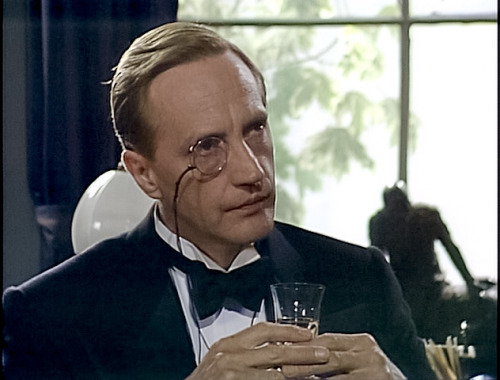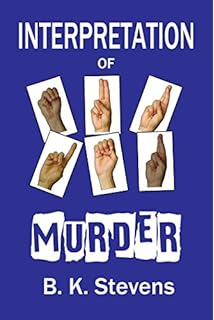Mystery short stories offer
us many pleasures, including the opportunity to enjoy,
briefly, the company of protagonists who might drive us crazy if we
tried to stick with them through an entire novel. I was reminded of this
truth recently when I reread a Dorothy L. Sayers story featuring
Montague Egg, a traveling salesman who deals in wines and spirits. Most
Sayers mysteries, of course, center on another protagonist, Lord Peter
Wimsey. As almost all mystery readers know, Lord Peter is highly
intelligent, unusually observant, and adept at figuring out how
scattered scraps of information come together to point to a conclusion.
Montague Egg fits that description, too. Both characters are engaging
and articulate, both have exemplary manners, and both sprinkle their
statements with lively quotations. More important, both Lord Peter and
Montague Egg abide by codes of honor, and both are devoted to the cause
of justice, to identifying the guilty and exonerating the innocent. And
Sayers evidently found both protagonists charming: She kept returning to
them for years, writing twenty-one short stories about Lord Peter,
eleven about Montague Egg.
But while Sayers also wrote eleven novels about Lord Peter,
she didn't write a single one about Montague Egg. I don't know if she
ever explained why she wrote only short stories about him--I checked two
biographies and didn't find anything, but there might be an explanation
somewhere. In any case, it's tempting to speculate about what her
reasons might have been.She
might have thought Egg lacks the depth of character needed in the
protagonist of a novel. That's true enough, but she could always have
developed his character further, given him more backstory. She did that
with Lord Peter, who's a far more complex, tormented soul in
Gaudy Night and
Busman's Honeymoon than he is in
Whose Body?
Or perhaps she thought all the little quirks that make Montague Egg
such an amusing, distinctive short story protagonist would make him hard
to take if his adventures were stretched out into a novel. Yes, Lord
Peter has his little quirks, too, but I think his are qualitatively
different. For example, while Lord peter tends to quote works of English
literature in delightfully surprising contexts, Montague Egg sticks to
quoting maxims from the fictional
Salesman's Handbook, such as
"Whether you're wrong or whether you're right, it's always better to be
polite." Three or four of these common-sense rhymes add humor to a quick
short story. Dozens of them might leave readers wincing long before a
novel ends.
I did plenty of wincing when I decided, not long ago, to read Anita Loos'
Gentlemen Prefer Blondes
(not a mystery, but protagonist Lorelei Lee does go on trial for
shooting Mr. Jennings, so I figure I can sneak it in as an example). For
the first thirty pages or so, I relished it, laughing out loud at
Lorelei's uninhibited voice, at the absurd situations, at the appalling
but flat-out funny inversions of anything resembling real values. Before
long, however, I was flipping to the back of this short book to see how
many more pages I had to read before I could declare myself done.
Lorelei's voice, which had been so entertaining at first, had started to
get on my nerves, and her delusions and her shallowness were becoming
hard to take. I couldn't understand why this book had been so wildly
popular until I found out it had originally been a series of short
stories in
Harper's Bazaar. Well, sure. A small dose of Lorelei
once in a while can be enjoyable, but spending hours with her is like
getting stuck talking to the most self-centered, superficial guest at a
party. If you ever decide to read
Gentlemen Prefer Blondes, I recommend reading it one chapter at a time, and taking at least a week off in between.
There
could be all sorts of reasons that a protagonist might be right for
short stories but wrong for novels. I wrote a series of stories (for
Alfred Hitchcock's Mystery Magazine)
about dim-witted Lieutenant Walt Johnson and overly modest Sergeant
Gordon Bolt. Everyone--including Bolt--sees Walt as a genius who cracks
case after difficult case. In fact, Walt consistently misunderstands all
the evidence, and it's Bolt who solves the cases by reading deep
meanings into Walt's clueless remarks. A number of readers urged me to
write a novel about this detective team. (And yes, you're right--most of
these readers are members of my immediate family. They still count as
readers.)
Despite
my fondness for Walt and Bolt, though, I never even considered writing a
novel about them. I think they're two of the most likable, amusing
characters I've ever created. But Walt is too dense, too anxious, and
too cowardly to sustain a novel. How long can readers be expected to put
up with a detective who's always confused but never scrapes up the
courage to admit it, no matter how guilty he feels about taking credit
for Bolt's deductions? And while I find Bolt's self-effacing admiration
for Walt sweet and endearing, I think readers would get fed up with his
blindness before reaching the end of Chapter Two.
I
think these two are amusing short-story characters precisely because
they're locked into patterns of foolish behavior. As Henri Bergson says
in
Laughter, repetition is often a fundamental element in comedy.
But this sort of comedy would, I think, get frustrating in a novel.
Readers expect the protagonists in novels to learn, to change, to grow.
Walt and Bolt can't learn, change, or grow without betraying the premise
for the series. So I confined them to twelve short stories, spread out
between 1988 and 2014. In the story that completed the dozen, I brought
the series to an end, doing my best to orchestrate a finale that would
leave both characters and readers happy--a promotion to an
administrative job for Walt, so he can stop pretending he's capable of
detecting anything, and a long-awaited wedding and an adventure-filled
retirement for Bolt. I truly love these characters. But I'd never trust
them with a novel.

Other
short-story protagonists, though, do have what it takes to be
protagonists in novels, too. Lord Peter Wimsey is one example--in fact,
most readers would probably agree that, delightful as most of the
stories about him are, the novels are even better. Sherlock Holmes is
another example--four novels, fifty-six short stories, and I think it's
fair to say he shines in both genres. I considered one of my own
short-story protagonists so promising that I decided to build a novel
around her. Before I could do that, though, I had to make some major
changes in her character.
American Sign Language interpreter Jane Ciardi first appeared in a December, 2010
Alfred Hitchcock's Mystery Magazine
story, now republished as a Kindle story called "Silent Witness."
Positive responses to the story--including a Derringer from the Short
Mystery Fiction Society--encouraged me to think I might be able to do
more with the character. It also helped that one of my daughters is an
ASL interpreter who can scrutinize drafts and provide insights into deaf
culture and the ethical dilemmas interpreters face. And I like Jane.
She's smart, she's observant, she has acute insights into human nature,
and she has a strong sense of right and wrong. In "Silent Witness," when
she interprets at the trial of a deaf man accused of murdering his
employer, she wants the truth to come out. She definitely doesn't want
to see an innocent man go to prison.

But
the Jane Ciardi of "Silent Witness" is mostly passive. She's sharp
enough to figure out the truth and to realize what she should do, but
she lacks the courage to follow through. Her final action in the story
is to fail to act, to sit when she should stand, to convince herself
justice will probably be done even if she remains silent. I think all
that makes Jane an interesting, believable protagonist in a short story
that raises questions it doesn't quite answer.
I don't
think it's enough to make her a fully satisfying protagonist in a
novel--at least, not in a traditional mystery novel. In what's often
called a literary novel, the Jane of "Silent Witness" might do
fine--another protagonist paralyzed by doubt, agonizing endlessly about
right and wrong but never taking decisive action. The protagonists of
traditional mysteries should be made of sterner stuff. So in
Interpretation of Murder,
I made Jane regret and learn from the mistakes she'd made in "Silent
Witness." We find out she did her best to correct them, even though it
hurt her professionally. And when she's drawn into another murder case,
she works actively to uncover the truth, she comes up with inventive
ways of gathering evidence, and she speaks out about what she's
discovered even when situations get dangerous. I can't be objective
about Jane--others will have to decide if these changes were enough to
make her an effective protagonist for
Interpretation of Murder.
But I'm pretty sure mystery readers would find the Jane of "Silent
Witness" a disappointing companion if they had to read an entire novel
about her.
Have you encountered mystery characters who are effective
protagonists in short stories but not in novels--or, perhaps, in novels
but not in short stories? If you're a writer, have you decided some of
your protagonists work well in one genre but not in the other? If you've
used the same protagonist in both stories and novels, have you had to
make adjustments? I'd love to hear your comments.





















